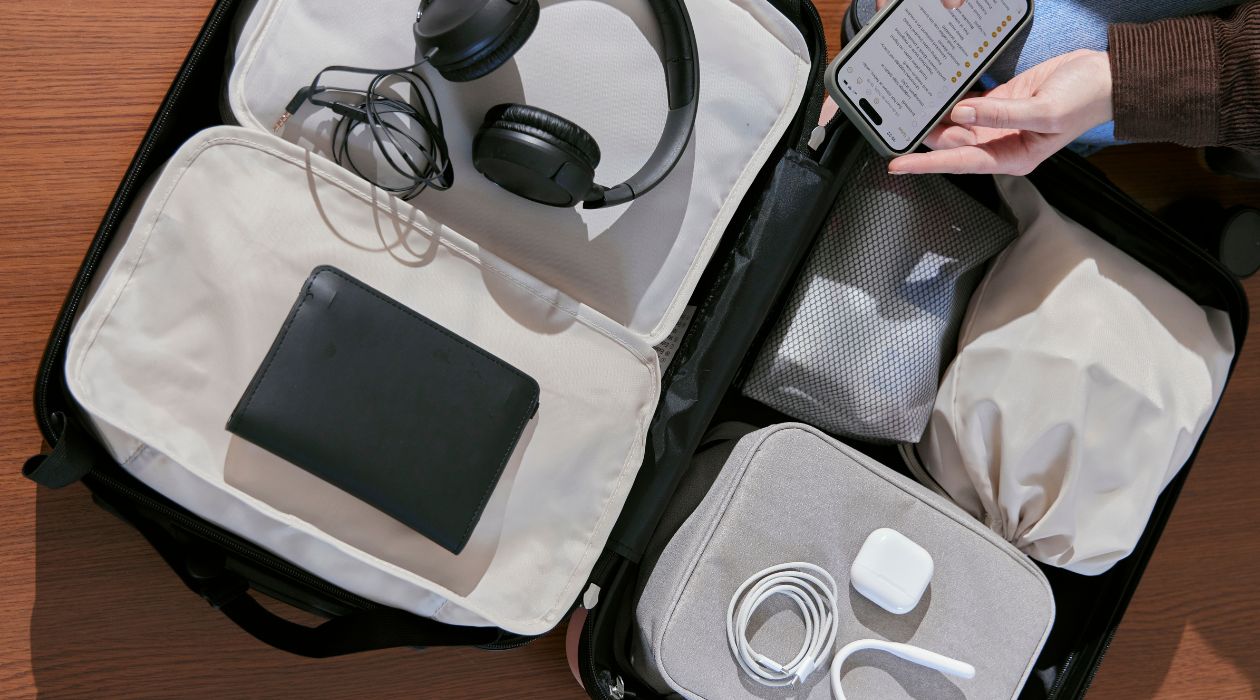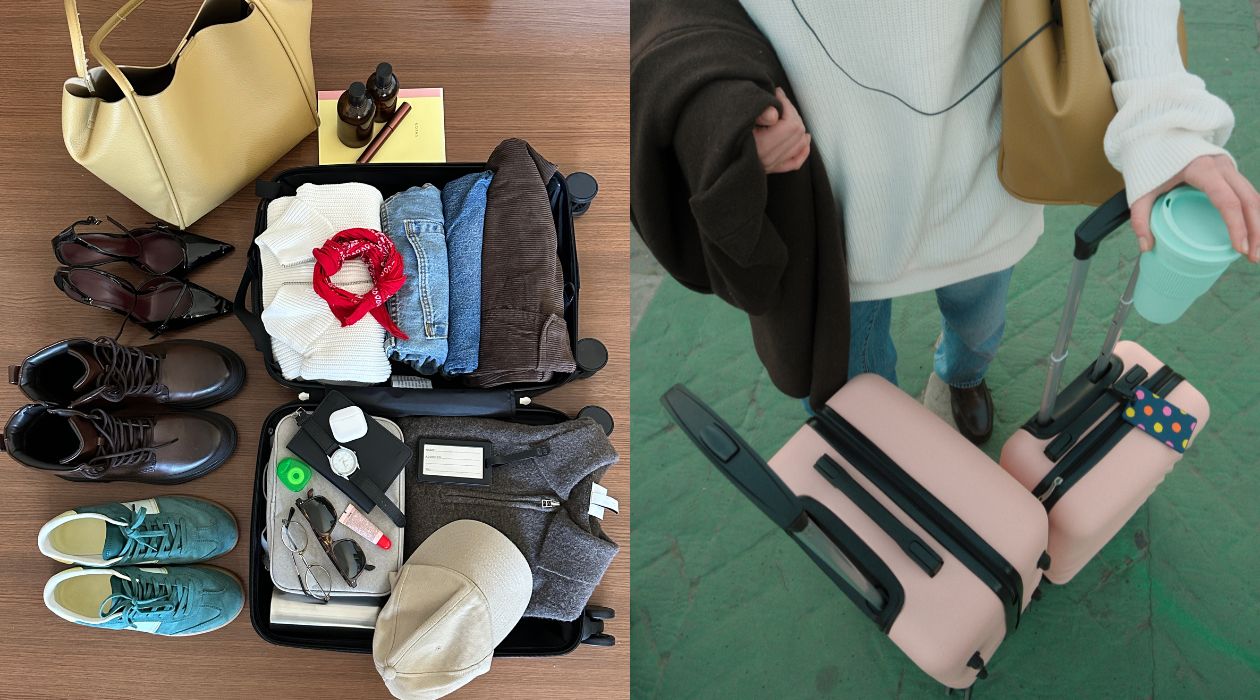
How Airlines Are Changing Their Luggage Rules in 2025 What Travelers Need to Know
When you travel by air in 2025, it is not all about the destination, but more about the content of the suitcase. During the revival of travel, an industry that is now concentrated more on efficiency, sustainability and experience, airlines are silently reinventing one of the least discussed elements of air travel: baggage policies.

It does not matter whether you are a seasoned traveller or the person who pulls out of a garage his/her passport after a few years; this is what you should know about how airlines are evolving their baggage regulations in 2025 and how they affect your trip, your pocket and even the environment.
1. Weight-Based Fares Are on the Rise
In 2025, more airlines are shifting from piece-based baggage allowances to weight-based systems. Instead of one-size-fits-all policies like “1 checked bag up to 23 kg,” travelers now pay based on total baggage weight, regardless of how many pieces they carry.
Why the Change?
This model is flexible enough and promotes light travel. When passengers pack smart, airlines save on fuel and reduce their emissions, and passengers have the advantage of bringing only what they pay for.
What You Can Do:
-
Heavy luggage is costly. Buy a light suitcase.
-
Weigh luggage at home on a digital tourist luggage scale to prevent a surprise at the airport.
-
Use modular luggage (such as the sustainable designs of Koora) to adjust the amount that you bring according to the type of trips.
2. Carry-On Sizes Are Shrinking—But Getting Smarter
In a push to speed up boarding and reduce overhead bin chaos, many airlines are reducing the size limits of cabin baggage. However, they’re also upgrading cabins with smarter storage designs, including vertical compartments, seat-front lockers, and under-seat drawers.
Some low-cost carriers now allow only one compact personal item unless you pay extra for overhead bin access.
What You Can Do:
-
Check updated size limits before you fly—they now vary even within alliances.
-
Choose compact carry-ons designed to fit evolving airline specs (Koora, for example, is developing modular cabin bags that adapt to new restrictions).
-
Pack smarter: compression cubes, foldable shoes, and capsule wardrobes are your new best friends.
3. Carbon Emissions Linked to Your Luggage
In 2025, sustainability is no longer a side note—it’s a central theme. Airlines are transparently displaying the carbon cost of luggage per passenger during checkout.
You might see this:
“Your checked-in bag adds 12kg CO₂ to this flight.”
Some airlines even offer discounts or carbon offset credits if you opt for carry-on only.
Why the Change?
Fuel consumption increases with every kilogram on board. By making the impact visible, airlines encourage climate-conscious travel behaviours.
What You Can Do:
-
Pack light when possible. Less weight means lower emissions.
-
Support airlines that offer incentives for lighter luggage or invest in sustainability programs.
-
Travel with gear that supports a lighter footprint—such as Koora’s eco-conscious luggage made from recycled materials.
4. AI-Driven Baggage Screening
Among the largest of the backstage developments of 2025, we may include the presence of AI and smart scanners in screening luggage. The days of having to take your laptop and toiletries out at the security gates are hereby gone.
Today, you go through a CT scanner and AI scanning of your carry-on luggage, which tells the truth in 3D. It implies quicker security check-ups, no more delays, and less repacking.
Other airports even have touchless bag drop points where your bag can be (weighed, scanned, and tagged) with facial recognition and QR codes.
What You Can Do:
-
Keep your bag organised—modular compartments and tech sleeves can help.
-
Invest in travel gear that’s TSA/CT-screen compatible.
-
Avoid restricted items, even in small doses—AI systems flag them instantly.
5. Biometric Baggage Tracking Is the New Norm
In 2025, real-time tracking isn’t just for your rideshare—it’s for your luggage, too.
Airlines have integrated biometric tags and app-based luggage tracking that lets you:
-
See where your bag is at any time
-
Get alerts if it's delayed or rerouted
-
Track transfer through connecting flights
Some carriers now offer RFID-based tags linked to your boarding pass or facial ID, meaning your face is your bag claim ticket.
What You Can Do:
-
Use airline apps or global tracking tools like Apple AirTags or the Koora Smart Tag.
-
Choose a luggage brand with built-in tracking compatibility.
-
Tag your bag clearly and register your tag with your airline before flying.
6. Dynamic Pricing Based on Peak Hours & Load
Much like surge pricing in ride-sharing, airlines now use dynamic pricing for checked bags depending on:
-
Time of year
-
Route popularity
-
Aircraft load and fuel prices
This means your baggage fee for the same flight might be ₹1,800 on a Tuesday and ₹2,800 on a Friday.
What You Can Do:
-
Book off-peak whenever possible.
-
Prepay for luggage online, where it’s often cheaper than at the counter.
-
Sign up for airline rewards or cards offering free baggage benefits.
7. Subscription-Based Baggage Plans
Frequent flyers now have access to subscription luggage plans from major airlines and luggage brands. Think of it like Netflix but for travel bags.
You pay a monthly or annual fee and get:
-
-
Free checked bags on all flights
-
Priority bag handling
-
Luggage insurance
-
Access to premium luggage services like Koora’s rent-and-return model for eco-friendly carry-ons
-
What You Can Do:
-
If you fly often, compare subscription plans across airlines.
-
Look into sustainable luggage subscriptions that allow you to rent gear instead of owning it.
-
Use modular gear to make the most of what your plan allows.
8. Luggage Restrictions for Domestic vs. International
In 2025, airlines are increasingly differentiating luggage policies based on trip type:
-
Domestic flights have tighter weight limits but more flexibility in carry-on
-
International flights allow larger checked bags but charge more for extra items
This reflects fuel, airport infrastructure, and route-specific sustainability goals.
What You Can Do:
-
Always review luggage rules for each leg of a multi-country itinerary
-
Use interlocking luggage systems that let you downsize mid-trip
-
Modular bags like Koora's let you detach smaller components for domestic flights and reattach them for international travel
Conclusion: Travel Light, Travel Smart
In 2025, luggage is not an accessory, but a choice that determines the cost, speed, comfort and your climate footprint. As airlines get even smarter about their policies, tracking powered by AI, and dynamic pricing, passengers also need to reconsider how they travel with luggage, and what it is in.
Become an early adopter of the latest airline baggage rules by picking modular carry-on products, using smart tracking apps, or flying with environmentally friendly labels such as Koora, and you can easily enjoy a gentler, smarter, and greener trip the next time around.
Do you understand me? That is, before sitting in a train, read this article:
Is your baggage prepared to 2025?



Leave a comment
This site is protected by hCaptcha and the hCaptcha Privacy Policy and Terms of Service apply.